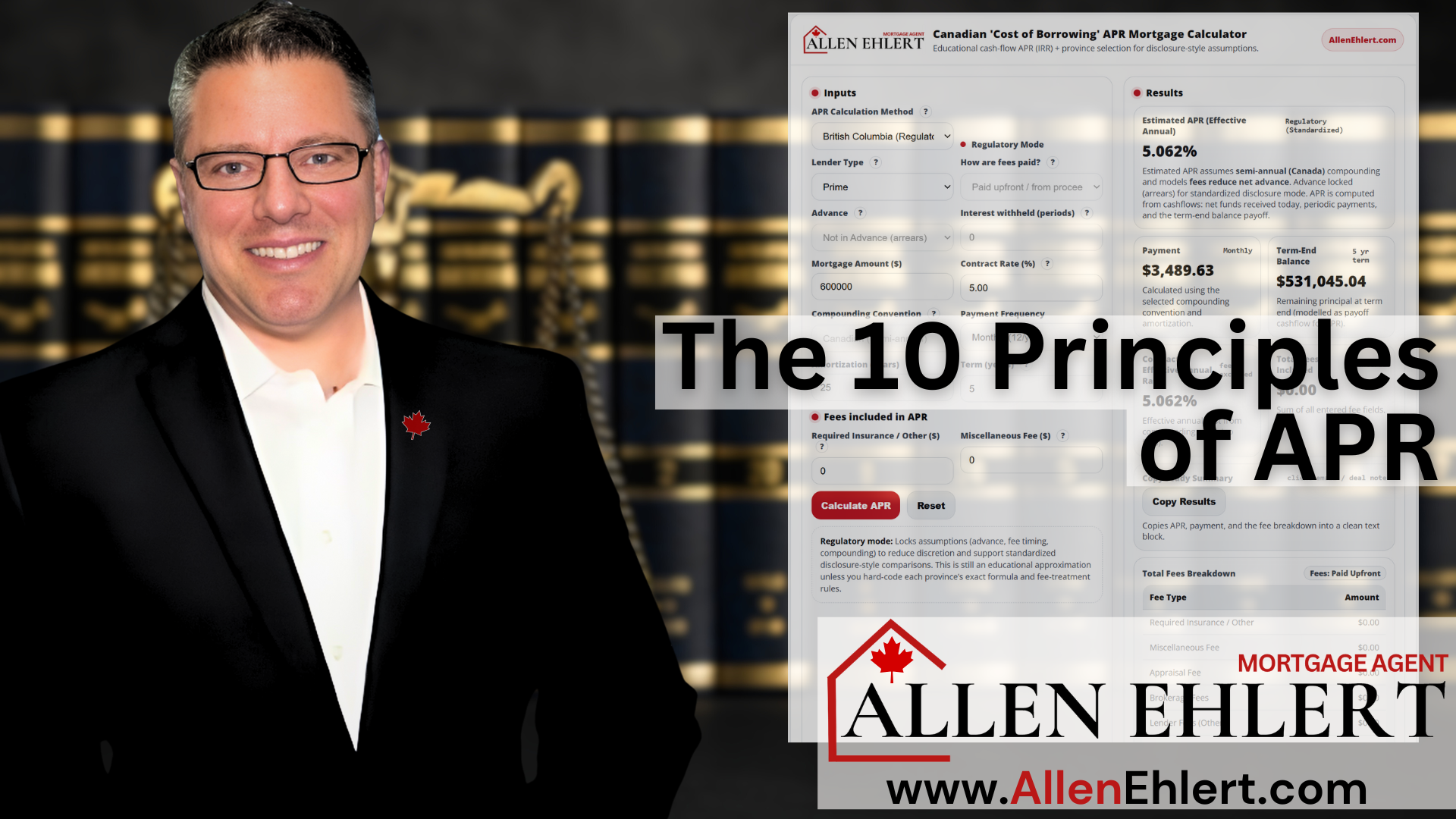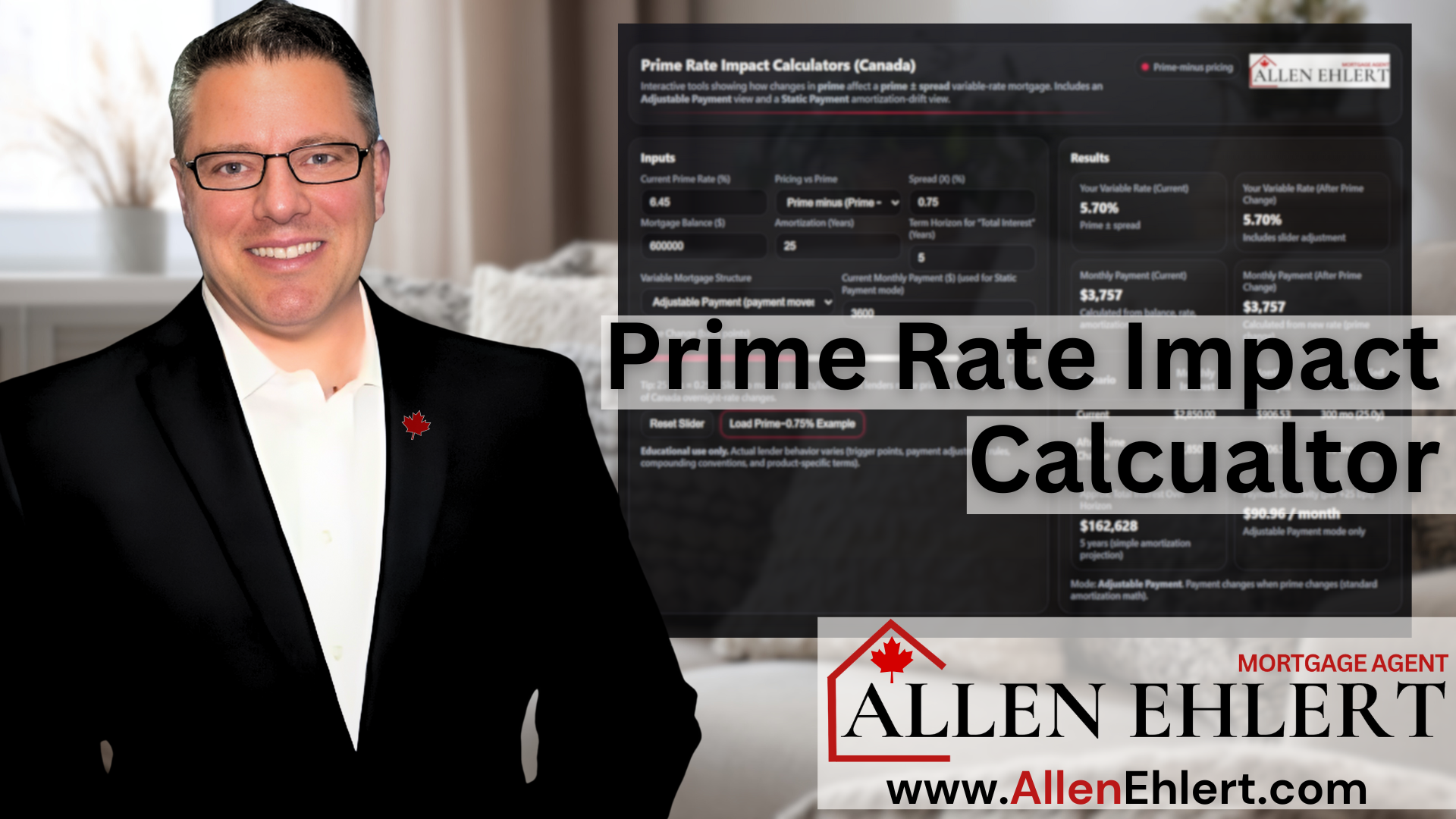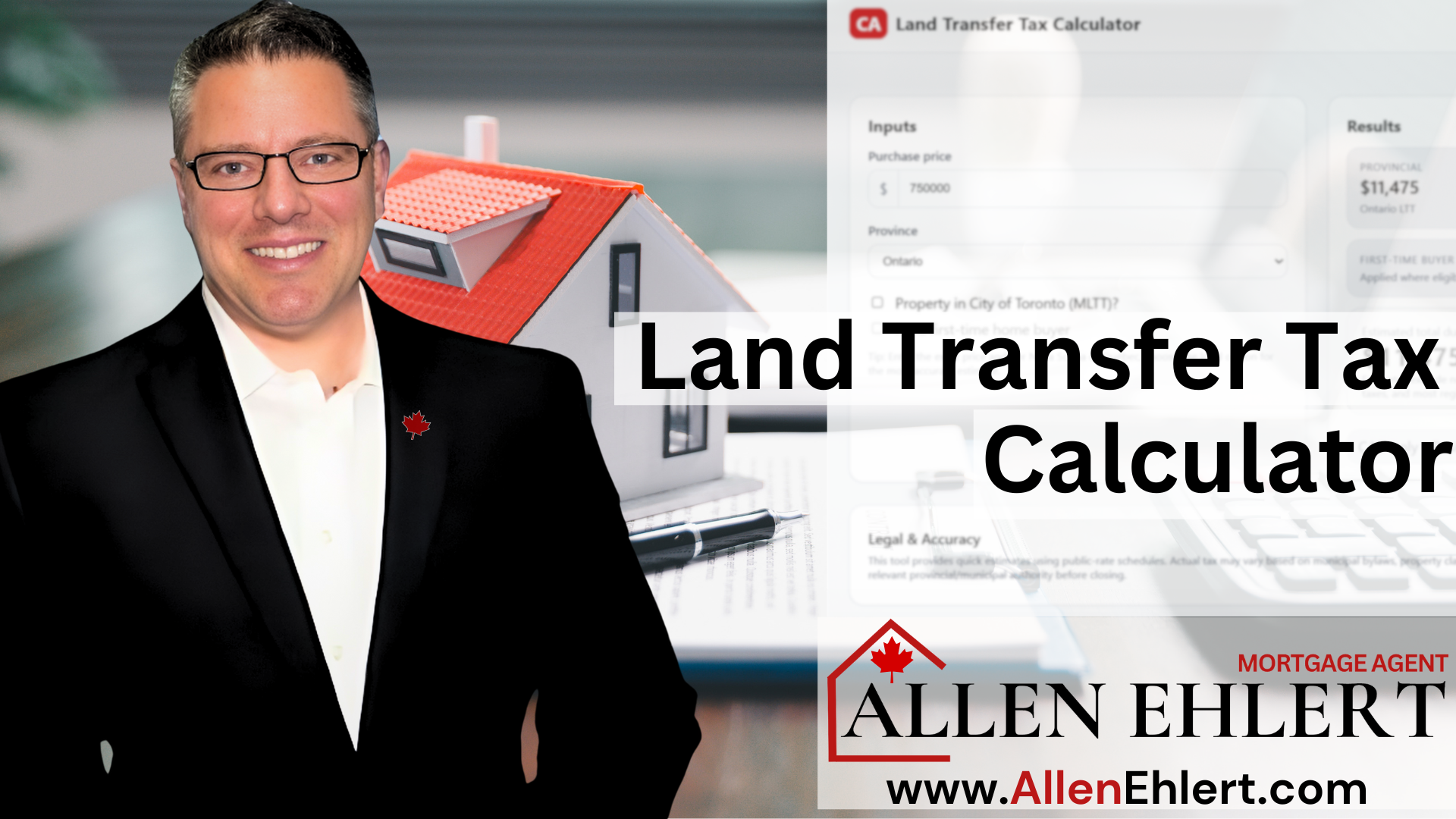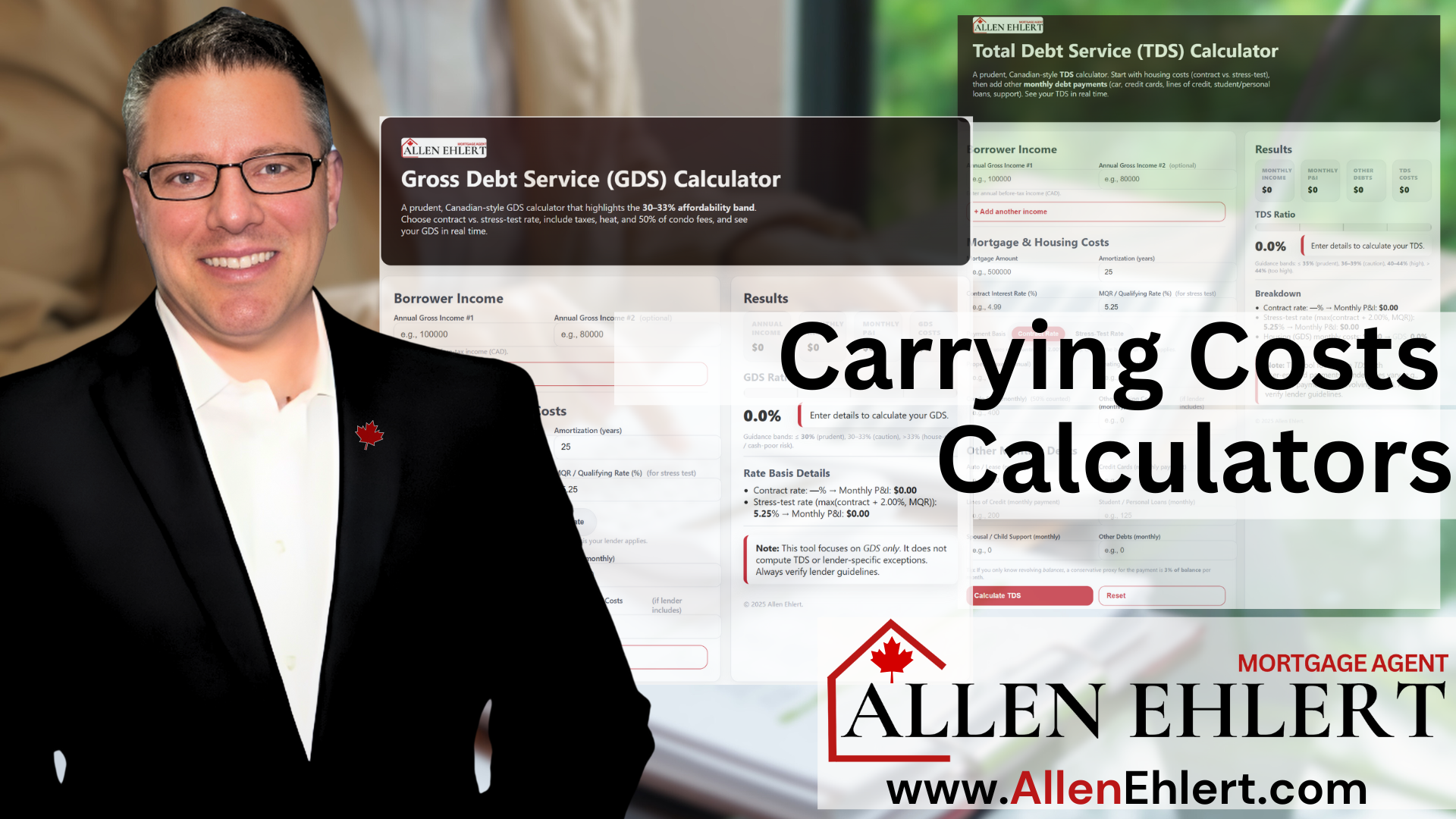… It’s About Understanding Commercial Loan Metrics
If you’re used to dealing with residential mortgages, here’s something that might surprise you about commercial lending: your salary isn’t the star of the show anymore. In fact, your personal income often takes a backseat altogether.
That’s because commercial lenders don’t care how big your paycheque is — they care about how well your property performs. It’s the building’s income, expenses, and cash flow that take centre stage. Think of it this way: you might earn six figures as a corporate executive, but if you’re trying to finance a run-down plaza with half the units empty? The lender’s not impressed.
So, let’s dive into how commercial lenders really evaluate deals, what metrics they obsess over, and how you can use this to your advantage.
What I’m Covering:
Why Property Income is the Priority
Key Metrics Lenders Use to Approve Commercial Mortgages
What Lenders Care Less About (But You Should Still Know)
How to Strengthen Your Commercial Loan Application
How You Can Use This Knowledge in Practice
Why Property Income is the Priority
In commercial real estate, the property itself is expected to pay the bills. Lenders aren’t counting on your salary to cover shortfalls or fund operating costs. They’re looking at the property as a business in and of itself.
Does it produce reliable income? Can it support the debt? Is it stable, with a good tenant mix and reasonable expenses? That’s the game.
Your income might matter if you’re signing personally on the loan, but it’s not the driver. The property’s cash flow, tenants, leases, and potential resale value matter far more.
Think of it this way: lenders lend against income-producing assets, not against your job title.
Key Metrics Lenders Use to Approve Commercial Mortgages
Here’s the nitty-gritty of what lenders are really crunching numbers on:
Net Operating Income (NOI)
This is the income the property earns after expenses but before debt payments. NOI is the heartbeat of any commercial deal.
Debt Service Coverage Ratio (DSCR)
This tells the lender how comfortably the property’s income covers the mortgage payments. A DSCR of 1.20 or higher is the magic number — it means the property earns at least 20% more than what’s needed to service the debt. The higher this number, the stronger your position.
Loan-to-Value (LTV)
Lenders want to see how much skin you’ve got in the game. Typically, they’ll cap commercial mortgages at 65-75% LTV, depending on the asset and location. Lower LTV usually means better rates and terms.
Stabilization & Tenancy
Properties with long-term, reliable tenants and full occupancy are viewed more favourably than buildings with high vacancy or short-term leases. Stability equals lower risk.
Location & Market Conditions
Strong markets mean stronger demand, better rental rates, and more stable values. This impacts how lenders view your asset.
What Lenders Care Less About (But You Should Still Know)
While your personal finances don’t carry the same weight as they would in residential lending, they’re not irrelevant. Here’s what they might still peek at:
- Your net worth and liquidity. They want to know you’ve got reserves in case something unexpected happens.
- Your experience. If you’ve successfully owned or managed similar properties, that gives lenders comfort.
- Your credit history. They’re looking for responsibility, not perfection.
But again, these are supporting characters — the property’s performance is the star of this show.
How to Strengthen Your Commercial Loan Application
If you want to impress lenders (and trust me, you do), focus on these strategies:
- Maximize NOI. Increase rents where possible, reduce unnecessary expenses, and keep your books clean.
- Secure strong tenants. Long-term leases with reputable tenants make lenders feel warm and fuzzy.
- Prepare thorough financials. Rent rolls, lease agreements, operating statements — organized and current.
- Highlight stability. Show a history of low vacancy and consistent cash flow.
- Improve your liquidity. Cash reserves can tip the scales in your favour.
The cleaner and more stable your deal looks on paper, the more favourable your financing terms will be.
How You Can Use This Knowledge in Practice
Let’s say you’re eyeing a small multi-family building. Instead of leading with your six-figure salary, you:
- Gather clean rent rolls showing strong occupancy.
- Present detailed financial statements highlighting a healthy NOI.
- Emphasize long-term tenants and well-maintained units.
Or maybe you’re buying a retail strip with some vacancy. Before applying, you:
- Lock in new tenants.
- Tidy up leases.
- Reduce expenses where possible.
You’re now presenting a stabilized asset with predictable income — exactly what lenders want to see.
Allen’s Final Thoughts
When it comes to commercial mortgages, it’s not about how much you make personally — it’s about how well your property performs. Lenders want to see strong, stable income, predictable expenses, and a clear path to profitability.
The better you understand the metrics lenders care about, the better positioned you are to structure deals that get approved — with terms that protect your cash flow and help you grow your portfolio.
And that’s exactly where I come in.
How I Can Help
As your mortgage agent, I’m here to help you package your deal the way lenders want to see it. I’ll help you:
- Analyze your property’s financials to ensure they meet lender expectations
- Identify areas for improvement before you apply
- Structure your financing to align with your goals
- Connect you with lenders who specialize in your type of asset
- Negotiate terms that protect your investment and your cash flow
Whether you’re buying, refinancing, or planning your next commercial move, I’m here to make sure your application tells the right story — the one lenders want to say “yes” to.
Let’s talk about how we can turn your next opportunity into a reality — the smart, strategic way.












